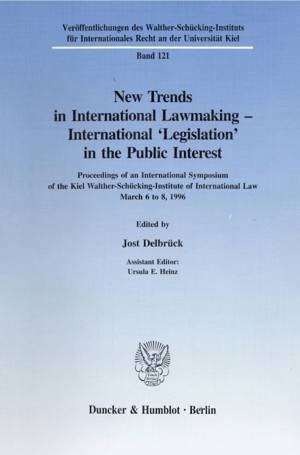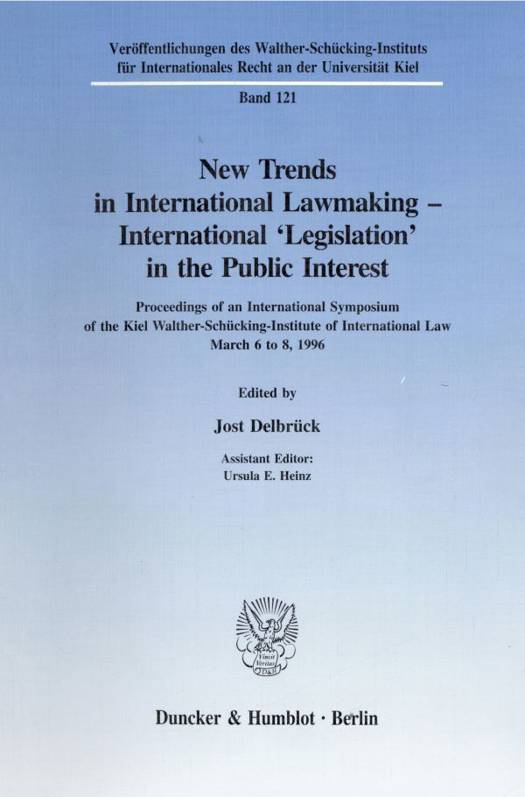
Bedankt voor het vertrouwen het afgelopen jaar! Om jou te bedanken bieden we GRATIS verzending (in België) aan op alles gedurende de hele maand januari.
- Afhalen na 1 uur in een winkel met voorraad
- In januari gratis thuislevering in België
- Ruim aanbod met 7 miljoen producten
Bedankt voor het vertrouwen het afgelopen jaar! Om jou te bedanken bieden we GRATIS verzending (in België) aan op alles gedurende de hele maand januari.
- Afhalen na 1 uur in een winkel met voorraad
- In januari gratis thuislevering in België
- Ruim aanbod met 7 miljoen producten
Zoeken
New Trends in International Lawmaking - International 'Legislation' in the Public Interest
Proceedings of an International Symposium of the Kiel Walther-Schucking-Institute of International Law, March 6 to 8, 1996
€ 172,95
+ 345 punten
Omschrijving
New threat scenarios include global environmental hazards, poverty generated mass migrations, and international terrorism which in view of the still not satisfactorily solved problem of containing the proliferation of weapons of mass destruction has taken on a new dimension. Although undeniably the task of meeting these challenges is an instrinsically political one, there can be no serious doubt that respective political steps to cope with these global threats to the well-being of humankind cannot be effectively taken without an adequate and enforceable legal framework. It is quite evident that such international or global legal framework cannot be designed on the basis of a traditional sovereignity-oriented international law. One can observe that international law has begun to react to the new environment in which it is to function more effectively. Modifications of the modes of creating adequate legal norms and efforts to broaden the scope of relevant international legal norms as well as to strengthen their enforceability vis-à-vis third states as in the case of the now well recognized norms with erga omnes effect are sure indications of the changing nature of international law in an era of global hazards. The 1996 International Law Symposium »The New Trends in International Lawmaking - International 'Legislation' in the Public Interest« brought together 28 leading scholars from the United States and Europe with a view to probe into these recent developments in the international legal order.
Specificaties
Betrokkenen
- Uitgeverij:
Inhoud
- Aantal bladzijden:
- 230
- Taal:
- Engels
- Reeks:
- Reeksnummer:
- nr. 121
Eigenschappen
- Productcode (EAN):
- 9783428091409
- Verschijningsdatum:
- 21/05/1997
- Uitvoering:
- Paperback
- Formaat:
- Trade paperback (VS)
- Afmetingen:
- 155 mm x 231 mm
- Gewicht:
- 3116 g

Alleen bij Standaard Boekhandel
+ 345 punten op je klantenkaart van Standaard Boekhandel
Beoordelingen
We publiceren alleen reviews die voldoen aan de voorwaarden voor reviews. Bekijk onze voorwaarden voor reviews.








